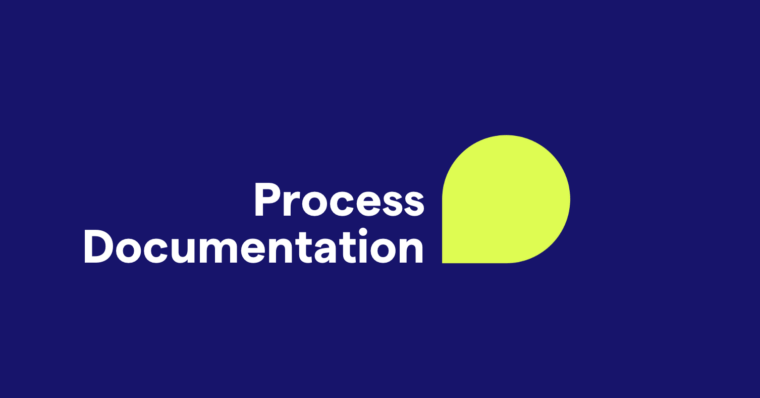
You’re writing a note to a colleague asking to have a “quick sync” to make a “game-time decision” on a “rock star” candidate you’re sure will “give 110 percent” to the job.
Few things are as potentially confusing (or grating) as jargon in business writing. It’s true that jargon can sometimes be a convenient shorthand when you’re communicating quickly to someone you’re pretty sure will understand you. But even if they do, it runs the risk of making your writing seem like in-group technobabble. For this and other reasons, you should avoid using jargon phrases in business writing.
What is jargon?
Jargon is a term or phrase used by a specific group or discipline. The words in a jargon phrase often convey an idea different from the words’ literal meaning. For example, “giving 110 percent” has nothing to do with math and is figurative language for “working very hard.”
Jargon is the opposite of plain language, which is direct, accessible language that is designed to communicate an idea simply. Jargon differs from industry-specific terminology because it is a way of saying something that can be said in a simpler, more direct way.
Jargon in business communication
Jargon can appear anywhere in business communication: a formal email to a client, an internal project proposal, the executive summary of a white paper, or elsewhere. Using jargon can be a colorful way to communicate a concept. But more often, jargon can make your writing appear vague and pretentious.
Jargon can make you appear like you’re trying to impress others, which has the counterintuitive effect of making you appear less skilled. In fact, a study by Harvard Business Review found that academics who were less experienced used more jargon than those who were more experienced. It’s often those who lack real expertise who use jargon to give the impression that they know what they’re talking about.
Regardless of your own knowledge, jargon can alienate or confuse others who do not understand the figurative phrase, especially those who aren’t native speakers of English and—given the plethora of sports phrases in business jargon—those who aren’t sports fans. If someone doesn’t understand your writing, you’ve failed to communicate with them. Jargon sometimes conceals an insensitive attitude or comes off as thoughtless, trendy, or clichéd. Lastly, jargon can be used to obscure or sugarcoat a less-than-pleasant idea, which can make it look like you’re avoiding a difficult subject. Think of the phrase “reduction in workforce” when a company needs to lay off a bunch of people.
For all of these negative reasons, jargon is unnecessary. If your idea can be conveyed more simply and accessibly without using jargon, it should be. You’ll seldom go wrong speaking clearly and directly.
Five common jargon phrases
Here are common jargon phrases frequently used in business writing:
Think outside the box
This phrase is vague and unclear. It suggests you’re asking someone to come up with new ideas but doesn’t specify the parameters of that request or what kind of ideas you’d like. It doesn’t tell them what, exactly, the box is. What’s more, it’s been overused and has lost whatever impact it once had. So it’s hard for people to understand or respond to this call to action. A clearer directive would be “come up with three new taglines” or “brainstorm four new ways our team can work with this other one on a weekly basis.”
Low-hanging fruit
This expression refers to something that is easy to achieve, as the orange that hangs on a low branch is easy to pluck. It’s relatively clear what it means, but it has a problematic association, and like the other expressions discussed here, it now lacks impact. If what you mean is “easy to achieve” or “a quick win,” why not say so?
Up the ante
This means to make something better or to put more effort into something, but it is unclear how. Do we put in more hours? Rethink a portion of the proposal? Or collaborate with another team we haven’t worked with yet?
Monday-morning quarterback
This refers to someone who watches a game on Sunday and decides the next day how it should’ve been played. In business use, it refers to someone who second-guesses a decision that they or someone else made in the office. Like other sports jargon phrases, this can be unclear, especially to the many colleagues you have who are not fans of American football.
Out of pocket
This means you’ll be unavailable. But it’s not clear how it came to mean this, or what pockets have to do with your schedule in the workplace. A better way to say this would be to more directly state that you will not be reachable by email or Slack—or just that you’ll be out of the office, if that’s the case.
Technical terms vs. jargon: Understanding the difference
Technical terms are specialized words or phrases that refer to something specific in a discipline. They are different from jargon because they are necessary phrases to communicate a very specific idea, which can’t readily be paraphrased into simpler words. One example of a technical term in marketing is “sales-qualified lead” or “SQL.” This is a term that refers to someone who has expressed interest in your company (a “lead”) that the sales team has agreed is a good prospect (“qualified”). There’s not really an easier, industry-approved way to say this.
Jargon is different from technical terms because it often is a more conversational phrase or expression that can be expressed in another, easier way. Saying someone is a “rock star at generating SQLs” is jargon. You could instead say that that individual is excellent at identifying people who are interested in your product.
Is jargon ever appropriate?
Jargon is sometimes appropriate in certain contexts. One example is when you’re talking with people who have used those phrases in the past, since you can be pretty sure they understand the phrases. (Of course, there’s a chance that they did not understand the jargon themselves when they used it!) Another way jargon can be appropriate is to serve as convenient shorthand when you and your audience already know what’s meant. For instance, in an ongoing discussion, once it’s clear what “disintermediation” involves, you may save words by relying on that term.
Role of audience in business writing
Your audience impacts all aspects of business writing, from the tone you take to the words you choose to use. Jargon can be appropriate to use when you’re communicating with peers whom you can be reasonably sure will understand the phrases. But if you’re talking to a wider audience that includes many people of different levels, it’s best to err on the safe side and avoid jargon in business writing.
Improve clarity and readability in business documents
It’s essential for business writing—regardless of whether you’re writing an email or a formal proposal—to be clear and direct so that the reader will understand your intended message. The best way to ensure this is to use plain language as opposed to jargon. Here are some tips for doing that:
Avoid abbreviations
One of the simplest rules is to write out the abbreviation rather than using the letters. For example, write out “marketing-qualified lead” rather than “MQL.”
Paraphrase and simplify
Challenge yourself to say more simply, by paraphrasing, the jargon you’re tempted to use. Pretend you’re speaking to a child. So instead of saying, “The juice is not worth the squeeze,” say, “It’s not worth it.”
Look it up, then replace it
If you’re not sure of a phrase’s exact meaning, don’t use it. Rather, look up the phrase you’re tempted to use to see what it means. Then, use an alternate phrase that more clearly conveys what you really want to say.
Assume the reader has no knowledge of your area
This assumption encourages you to use clear and simple words rather than words or phrases that you may hear tossed around.
Key takeaways
- Jargon is a term or phrase that means something other than the literal meaning of the word or words.
- Using jargon in business writing can make you come off as pretentious, exclusionary, and insecure.
- Using jargon can also confuse the person you’re giving guidance to. They may not understand what you’d like them to do.
- Writers should always prioritize clarity and simplicity for effective communication and should try to avoid jargon in most instances when they are writing in the workplace.
Jargon FAQs
Can jargon ever be appropriate in business writing?
Yes, jargon can sometimes be appropriate in business writing if you’re pretty sure the reader understands the expression you’re using or if it can serve as convenient shorthand for something you’ve already clarified. However, it should still be limited since too much jargon in one written piece can irritate the reader.
How do I know if a term is jargon or necessary technical language?
One way to tell if a term is jargon or necessary technical language is to try to paraphrase it in simpler terms. If it’s easy to do so, then it’s probably jargon, and you should go with the simpler phrase.
What are the best strategies for simplifying jargon-heavy writing?
The best strategies for simplifying jargon-heavy writing are to rephrase simply what you’re trying to say, assume the audience has no experience in your discipline, and avoid using abbreviations.
How can I make my business writing more accessible to a general audience?
Business writing should be clear and concise, and it should use simple words whenever possible. You can also assume that the audience who will read your writing has no expertise in your industry or area and that your job is to explain it to them as clearly as possible.






